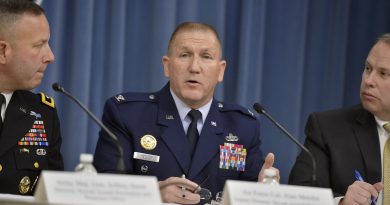ABC Panel Tackles Issues in African Diaspora Community
Saveria Antonacci
Staff Writer
On February 26, the Joseph A. Unanue Latino Institute and the Dr. Martin Luther King Jr. Scholarship Association hosted the inaugural “ABC Panel.” At this event, faculty and student panelists of various backgrounds discussed the complexities of African Diaspora, black identity, and colorism.
Rev. Dr. Forrest Pritchett, an activist and mentor who moderated the panel began by saying that“[this is] an opportunity to build bridges with one another… the ABC Panel is for everyone.” He described the purpose of the panel as an exercise in survivability between opposing forces, with some urging to assimilate, and others seeking to preserve cultural pluralism.
The first half of the panel consisted of five professors and mentors, including Dr. Binneh Minteh, an Associate Professor of International Relations in the School of Diplomacy. When asked about blackness and his opinion on who should be able to speak about it, Dr. Minteh alluded to his background of being a political refugee from The Gambia. He states that “the best person to do this is the person who is more of a unifier,” and continues that “when [he] think[s] of the history of man and woman of color in public spaces of the United States, there has always been a struggle for authenticity.”
Other panelists, including Dr. Donnell Pierre of the Educational Opportunity Program, gave their opinions on what it means to be black. He added “I don’t need to perform… I feel a desire to educate… I am right. I am authenticity.” Dr. Pierre believes in the power of education and that it is critical to understanding others and proving the bias of misconceptions.
The panel then focused on intersectionality within the black community. In an effort to give audience members and panelists a glimpse into the complexity of this issue, Dr. Juan Rios, an Assistant Professor of Social Work, summed up his experience with being Afro-Latino in academia. He says “it’s always sort-of this tension between who I am and where I come from, versus what is the expectation,” and he wonders that “if I drop the word ‘dope’ in my sentence in class, will the students look at me [as if] I’m educated enough?”
Ms. Lauren Mitchell of Freshman Studies also spoke about her experience with colorism as a biracial woman in predominantly white spaces. She said in the workplace, she says “I have to make sure that I am articulate and eloquent.” She admitted that while people have become more accepting of the shade of other’s skin, especially over social media, colorism still prevails in society. She has noticed that people with darker skin tones are not given the same amount of attention as those with lighter skin. At the same time, being a light-skinned woman in the black community can be isolating.
Additionally, Dr. Roseanne Mirabella, a Professor of Political Science and Public Affairs, provided a different perspective as a white woman. She explains, “I’m pretty conscious of being different… When thinking of what it means to be black, I see it through the eyes of my daughter. I have a 33-year old adult daughter with Down Syndrome that happens to be African American.” Dr. Mirabella acknowledges, “I have no idea what it’s like to walk this earth in skin that’s different than mine.” She urged students to recognize their advantages over others and to be each other’s allies on campus.
For the second half of the panel, students were able to share their experiences and opinions pertaining to the campus climate of Seton Hall. Emani Miles, an Africana Studies and Political Studies student, noted that “the administration has thought that the black community is a monolithic community, that we all have the same goals, that we all have the same experiences… and quite frankly we’re very diverse.” She stressed that there must be more attention given to these complexities. Osei Lindsay, a biochemistry major, added, “Sometimes we preach [diversity], we preach black culture, but we don’t appreciate the differences amongst ourselves as well.” The student panel then discussed whether students of Seton Hall are prepared for the workplace after graduating. All of the students agreed that their upbringing prepared them more. Jim Bedoya, a Business Marketing and IT Management major believes that he and many other students are prepared by “going outside of their comfort zones.”
Throughout the discussion, the panel spoke about the theme of acceptance and the power of being able to accept one another. Dr. Pierre emphasizes that “to be who you are is to know who you are, and once you realize who you are, [you can] say ‘I don’t need to change.’”


